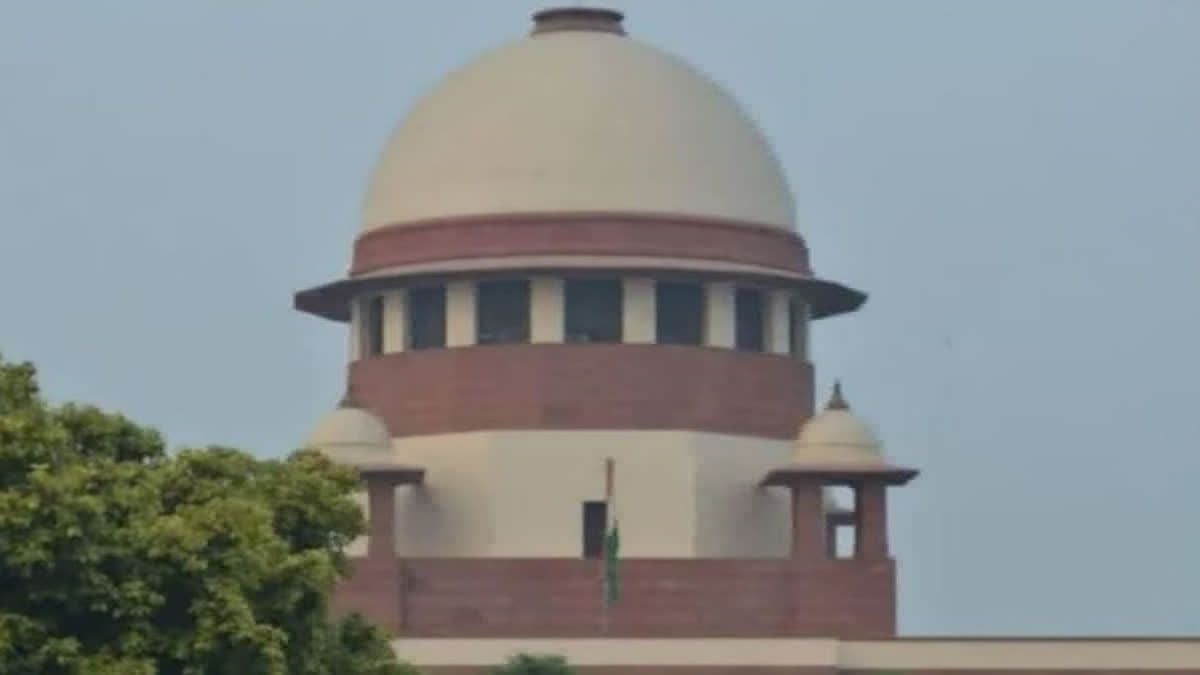New Delhi: The Supreme Court has said it is not an institution to "sermonise" society on morality and ethics and is bound by the brooding presence of the rule of law, as it allowed the appeal of a woman convicted of poisoning her two sons to death. The apex court made the observation while dealing with the appeal filed by the woman against the August 2019 judgement of the Madras High Court which had upheld her conviction for murdering her two sons.
The top court noted the woman had a love affair with a man, who used to threaten her often, and this led her to take the decision to end her life by suicide along with her children. A bench of Justices Ajay Rastogi and A Amanullah observed in its verdict that the woman bought pesticides and administered them to the two children who died. When she tried to consume the poison herself, her niece knocked it away.
"This court is not an institution to sermonise society on morality and ethics and we say no further on this score, bound as we are, by the brooding presence of the rule of law," the bench said in its judgement delivered on Thursday. The bench noted that the woman, who had already spent almost 20 years in jail, had applied for premature release but the recommendation of the State Level Committee (SLC) was rejected by the state of Tamil Nadu in September 2019, considering the nature of the offence committed by her.
The top court, which refused to interfere with her conviction for the offence of murder, observed there was no valid reason or justifiable ground for the state for not accepting the SLC's recommendation for her premature release. "We are not oblivious to the crime but we are equally not oblivious to the fact that the appellant (mother) has already suffered at the cruel hands of fate. The reason thereof is an arena this court would avoid entering," it said, while setting aside the order of the state rejecting her prayer for premature release.
The bench, while saying that the woman is entitled to the benefit of premature release, directed that she be released forthwith, if not required in any other case. It noted that the trial court had convicted her in January 2005 for the offences punishable under sections 302 (murder) and 309 (attempt to commit suicide) of the Indian Penal Code (IPC), and had sentenced her to life imprisonment.
Later, the high court had partly allowed her plea by acquitting her for the offence under section 309 of IPC while upholding her conviction for murder. "Having considered the matter in detail, this court finds that the circumstances in which the appellant is said to have administered poison to her two sons is clearly reflective of her being under a state of tremendous mental stress," the apex court said.
Dealing with the issue of premature release, it noted the positive recommendation of the SLC for her premature release was rejected by the state on the ground that she had administered poison to murder her two sons to continue her illicit relationship without any hinderance, an act which was cruel and brutal in nature.
"Pausing here, the court would note that the appellant never tried to murder her sons with a view to continue her illicit relationship. On the contrary, she had tried to commit suicide herself along with her children not with a view to continue her illicit relationship with her paramour but rather, in disappointment and frustration over the quarrel picked up by her paramour," the bench said.
The top court said it cannot be simply bracketed as a 'cruel and brutal' offence as the woman herself was trying to end her life but was prevented by her niece in the nick of time. (PTI)



